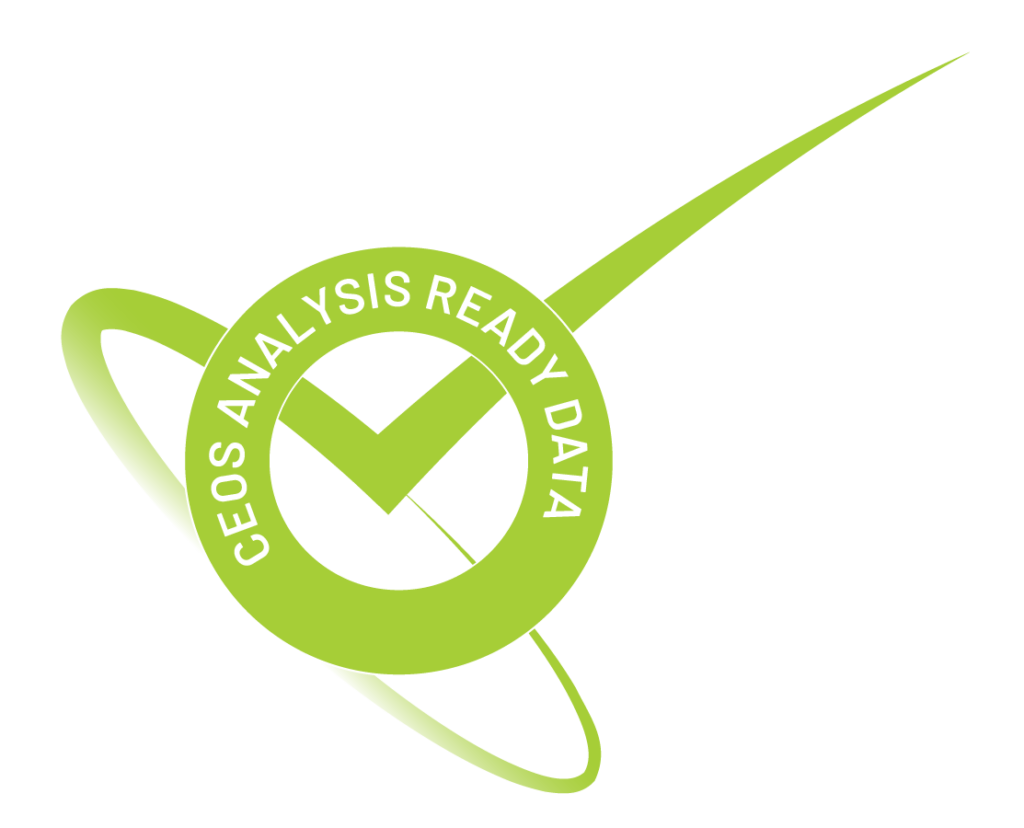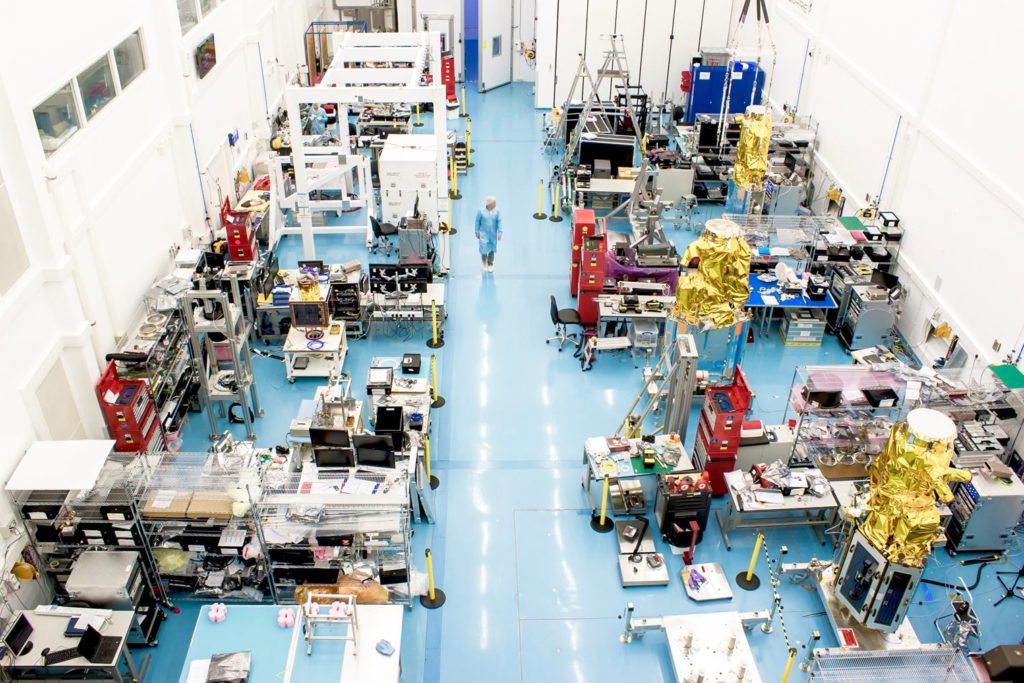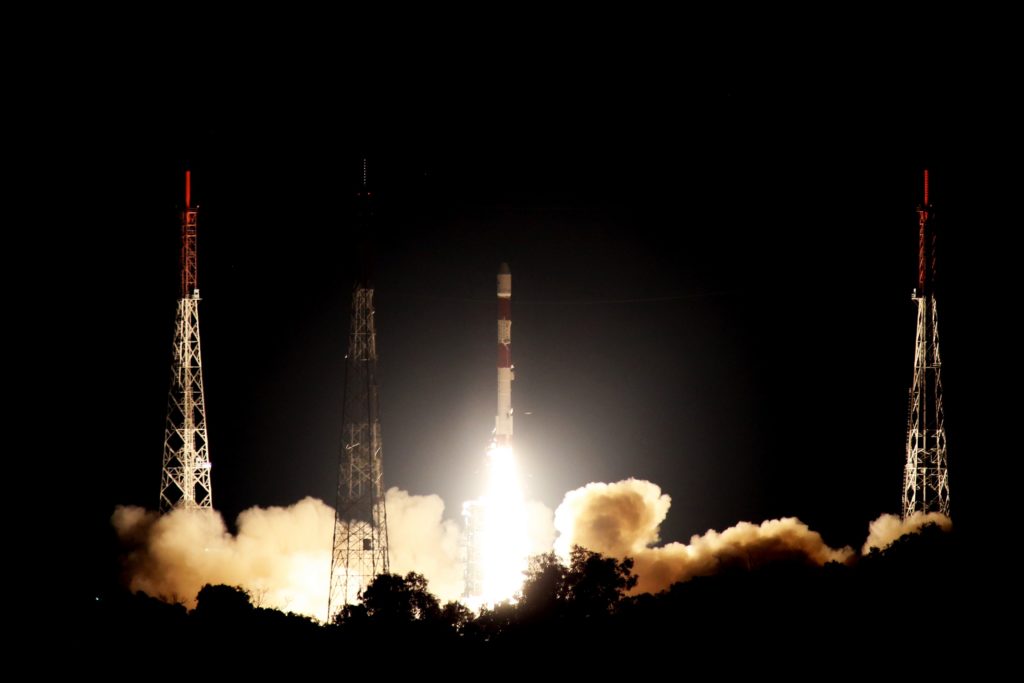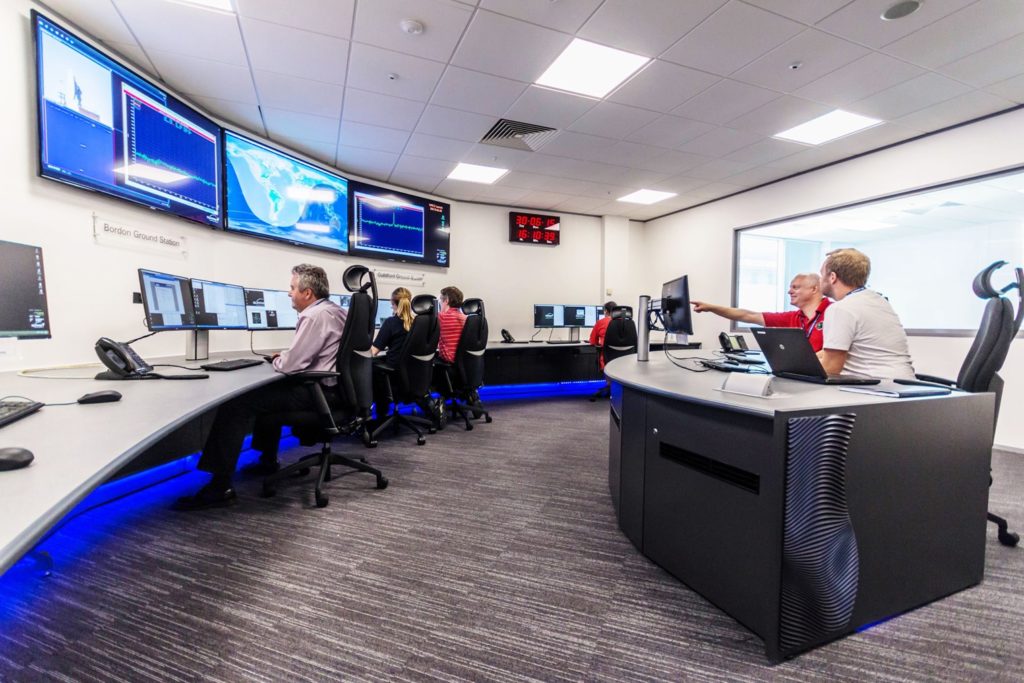Program Timeline
Manufacture, Assembly, Integration and Testing
NovaSAR-1 was assembled, integrated and tested at the SSTL cleanroom facilities in Guildford.
SSTL’s Assembly, Integration and Test Hall April 2015. Credit: SSTL/Max Alexander
Launch
NovaSAR-1 was launched into a 583km sun-synchronous orbit on board the PSLV-C42 launch vehicle from the Satish Dhawan Space Centre in Sriharikota, India on 16 September 2018 at 2:38 am AEST by Antrix Corporation Limited, the commercial arm of the Indian Space Research Organisation.
NovaSAR-1 launch on PSLV-C42, 17 Sep 2018. Credit: ISRO/Antrix
Commissioning
The commissioning phase of the mission was run by SSTL from their Guildford, UK based Satellite Operations Centre, for a period of 12 months, to conduct the following tests:
- orbital manoeuvres
- hardware and software testing
- payload chain testing
- radiometric and geometric calibration and validation
- operational readiness testing
SSTL’s Spacecraft Operations Centre, Guildford, UK. Credit SSTL/Max Alexander.
Initial tasking
Following completion of the commissioning, SSTL carried out initial tasking over Australia during August and September 2019.
Operational testing
CSIRO was given access to the satellite for tasking images in late September 2019. With a list of internal project goals and the aim to cover the Australian land mass, we worked with SSTL to finalise the operational setup.
Nominal operations begin
Following the completion of commissioning and operational testing, the ongoing tasking, delivery and processing of NovaSAR-1 images began in December 2019 with the official Start-Of-Service.
National Facility officially live
The NovaSAR-1 National Facility for research opened in July 2021, with over 1000 images made available via the Datahub for users across the globe. CSIRO also began accepting proposals for new imaging requests.
Alice Springs ground station
In May 2022 the CSIRO share in NovaSAR-1 officially became an all-Aussie operation. The Centre for Appropriate Technology (CfAT) Satellite Enterprises ground station in Alice Springs is now downlinking all the data from NovaSAR-1.
NovaSAR-1 Analysis Ready Data Products CEOS-ARD compliant
In October 2023 the NovaSAR-1 Normalised Radar Backscatter (NRB) products were evaluated as CEOS-ARD compliant at the Threshold level.

NovaSAR-1 CEOS-Analysis Ready Data Products available
By March 2024, the archive data over Australia has been processed to CEOS-ARD level and became available to download from the CSIRO NovaSAR-1 National Facility Datahub and all images over Australia will be processed to CEOS-ARD as standard going forward.
End of operations
The CSIRO contract with SSTL concludes on 11 December 2026 after 7 years – the initial expected lifetime of the satellite.
Many SSTL satellites have outlasted their expected lifetime, so NovaSAR-1 may continue operating after this date but CSIRO will not have access to it.



